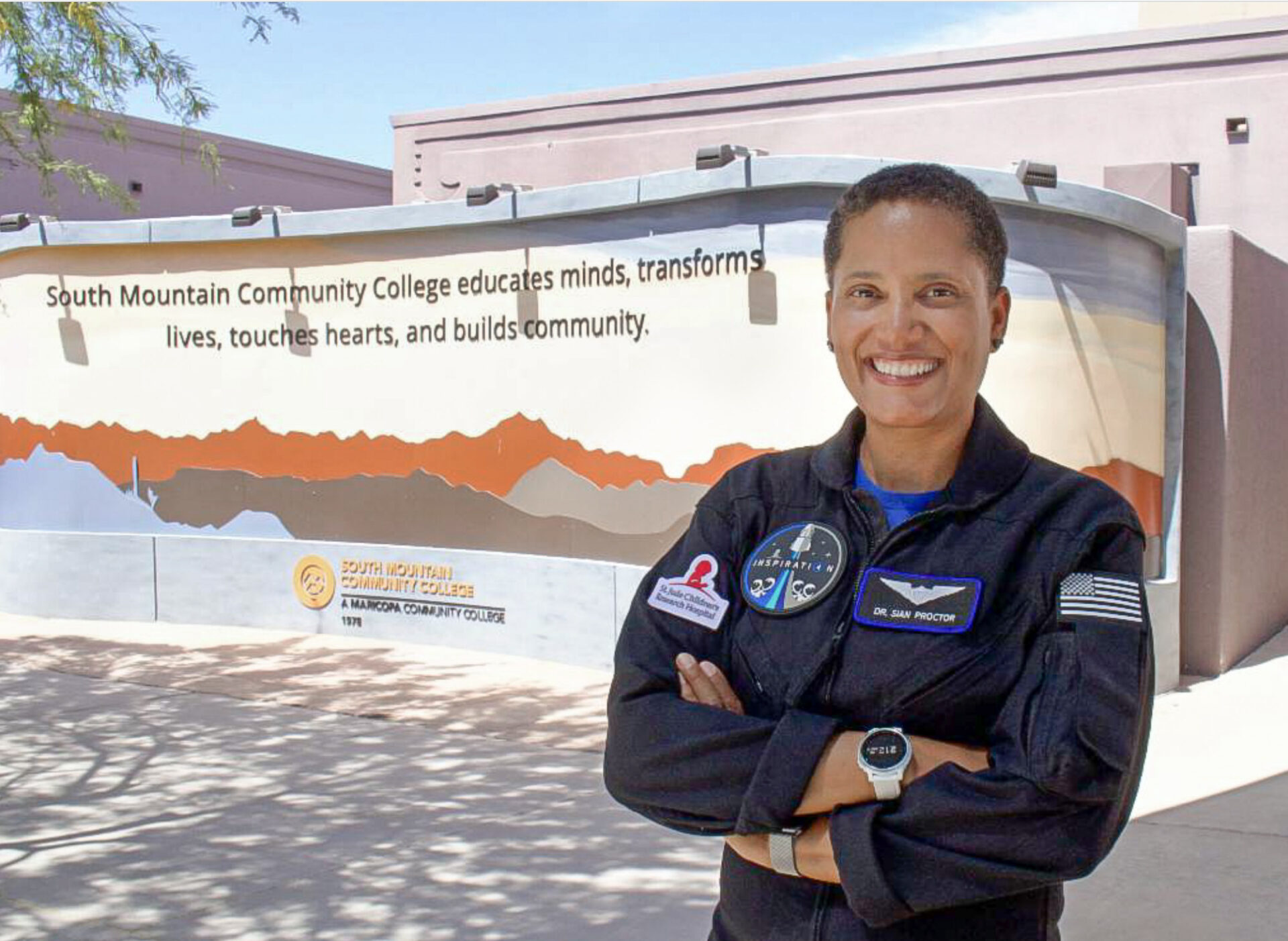
First Black female astronaut embodies Women’s History Month
Space always has been in Dr. Sian Proctor’s blood.
It was her fascination throughout her childhood, largely because her father, Ed, worked on the Apollo 11 mission from a NASA base on Guam, where she was born. His role in the mission that put the first man on the moon resulted in a note from astronaut Neil Armstrong that Proctor always held dear.
As a girl, she collected Star Wars comic books and memorabilia and Indiana Jones trading cards — items she carted around for decades, not knowing why.
Forty years later, she figured it out.
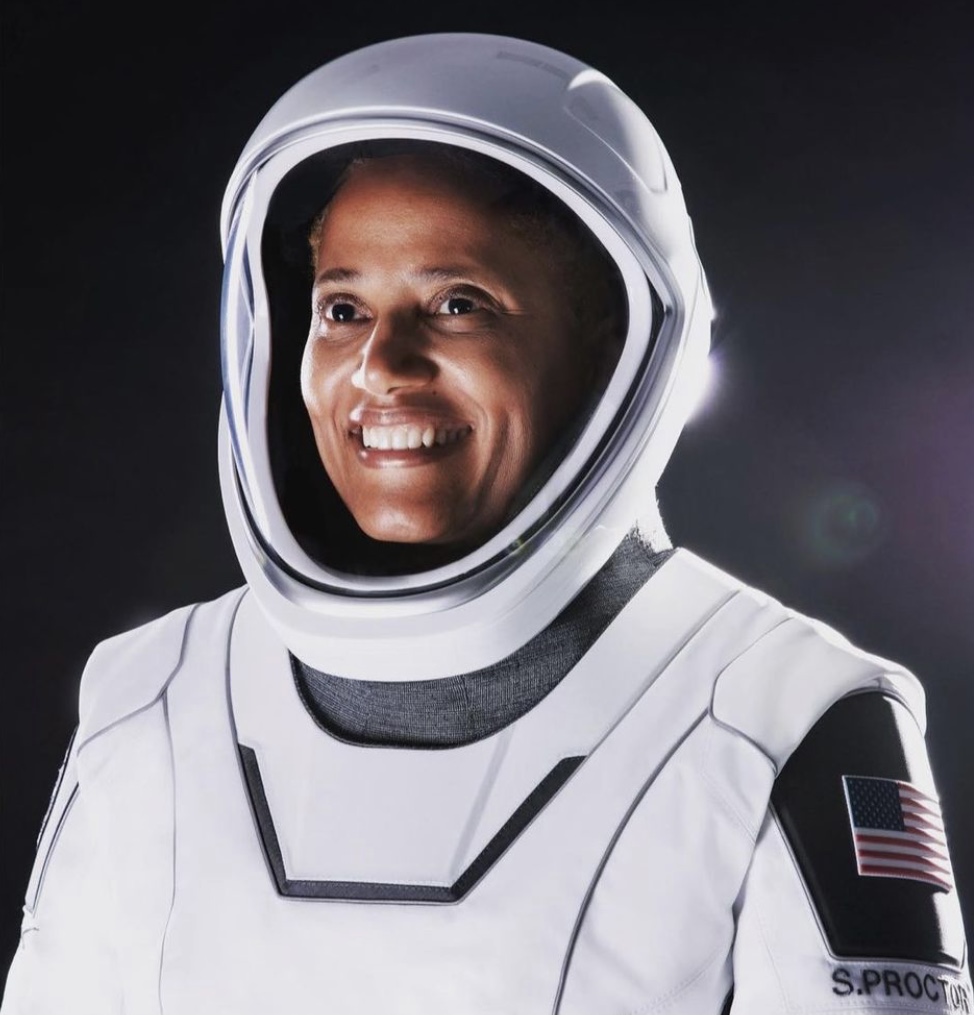
She stuffed them into her SpaceX duffle bag and carried them with her into space, along with art and poetry from her students and a Christa McAuliffe silver dollar, commemorating the first teacher in space, who died in the 1986 Challenger space-shuttle explosion. Also onboard with her was that precious autograph from the pioneering moonwalker, Armstrong.
Proctor, a Tempe educator, blasted into space onboard the first all-civilian SpaceX orbital mission, Inspiration 4, last September.
“Being bathed in Earth light is a big part of why you are transformed in space,” she said. “That light is a thousand times more brilliant and beautiful than the moon. You are just bedazzled.”
March is Women’s History Month, and Proctor is the embodiment of the observance. Not only did she make history as a member of the first all-civilian private mission into space, but also as the first Black woman to enter space and the first to pilot a spacecraft.
“It was like being named to the Olympic team,” said Proctor, who turns 52 this month. “I was selected, but now I had to prepare to go out and win the gold medal.”
There was a learning curve, and she faced it like a Jedi Knight.
Understand that Proctor is not one to shy away from risk and adventure. She’s a major in the Civil Air Patrol, a certified scuba diver, a bungee jumper and former captain of Arizona State University’s women’s ice-hockey team.
How she found her way to being strapped into the seat of a space capsule reflects her feisty side.
In 2009, Proctor was a finalist for the NASA astronaut class. She was not selected.
She wasn’t finished. Armed with a bachelor’s degree in environmental science, a master’s in geology and a doctorate in science education, she trained as an analog astronaut, conducting spaceflight simulations on Earth. Proctor did four missions.
Last spring, she entered a SpaceX commercial-spaceflight contest, writing and reciting a poem for a Twitter video. It in, she spoke about her life motto, Space2inspire, which she defines as “using my unique space to inspire those within my reach and beyond.”
And she discussed her mission to create a J.E.D.I. space — Just, Equitable, Diverse and Inclusive — for all of humanity.
“When I talk about J.E.D.I. space, it’s not about outer space,” Proctor said. “It’s about the space you inhabit. It’s how can you use that space better, and is a matter of what you say, your actions, your intentions. If we all made our space a J.E.D.I. space, think of what the world would be like.”
The video produced 70,000 likes.
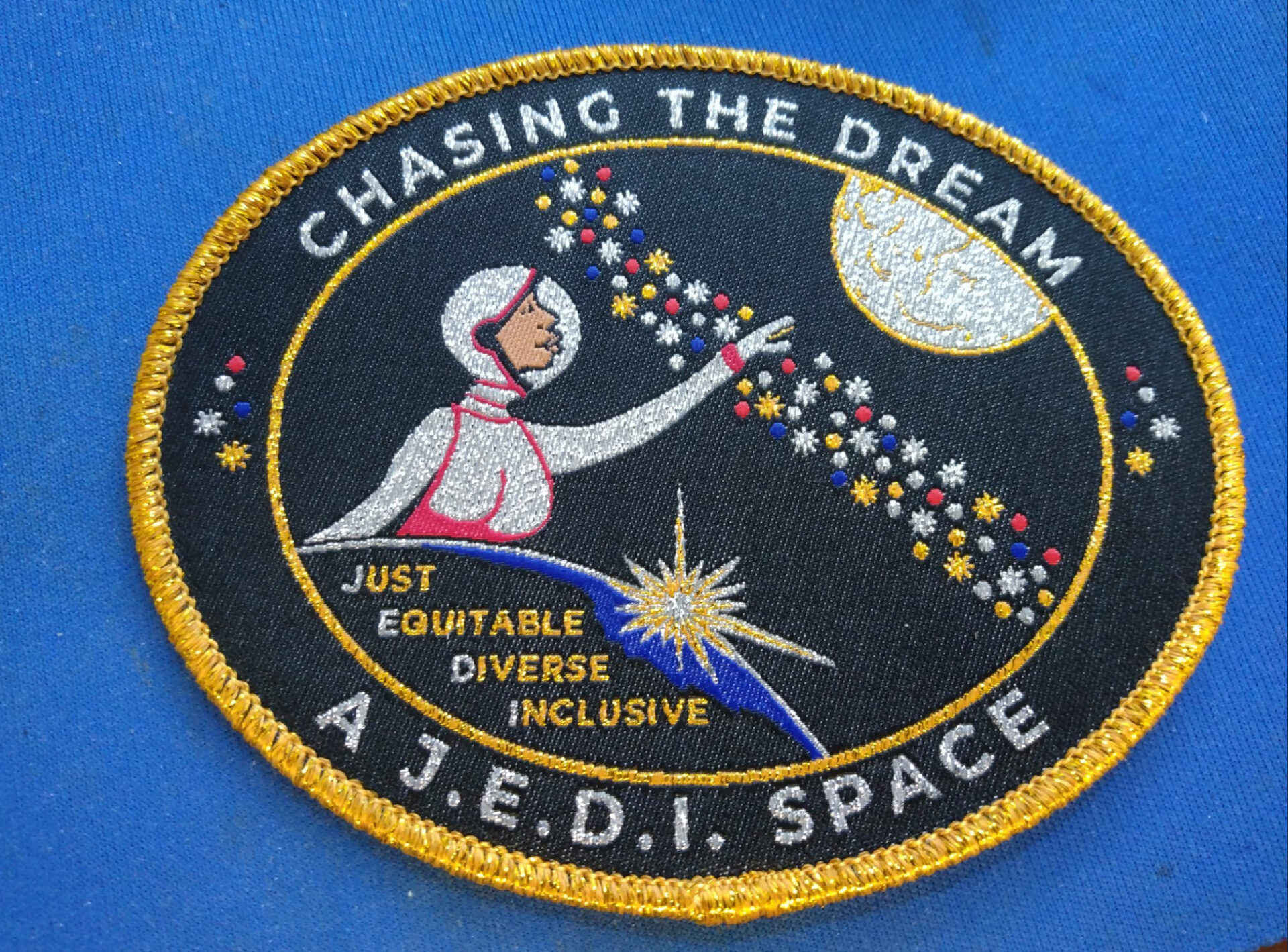
She won the contest. Her lifelong dream finally was coming true: She was going into space.
“As a seasoned Black woman, it meant the world to me,” she said.
Her selection is chronicled in the Netflix series, Countdown: Inspiration4 Mission to Space.
“I’m striving for that J.E.D.I. space that I talked about in my poem, and to be able to represent Black women was such an honor,” she said.
* * *
With an eye on the Sept. 15 launch from Kennedy Space Center in Florida, the geology professor/watercolorist/poet was laser-focused on staying fit, avoiding COVID-19, memorizing the Dragon spacecraft manual and training her mind as a systems engineer.
“It was a little nerve-wracking, because I had to learn how to think like and talk like and act like an engineer. But I’m a geologist,” said Proctor, who taught geology and planetary science at South Mountain Community College for 20 years.
In the week leading to the launch, Proctor and her three crew members were given call signs. Hers was “Leo” — after Leonardo da Vinci, who, like Proctor, was a painter, scientist and engineer.
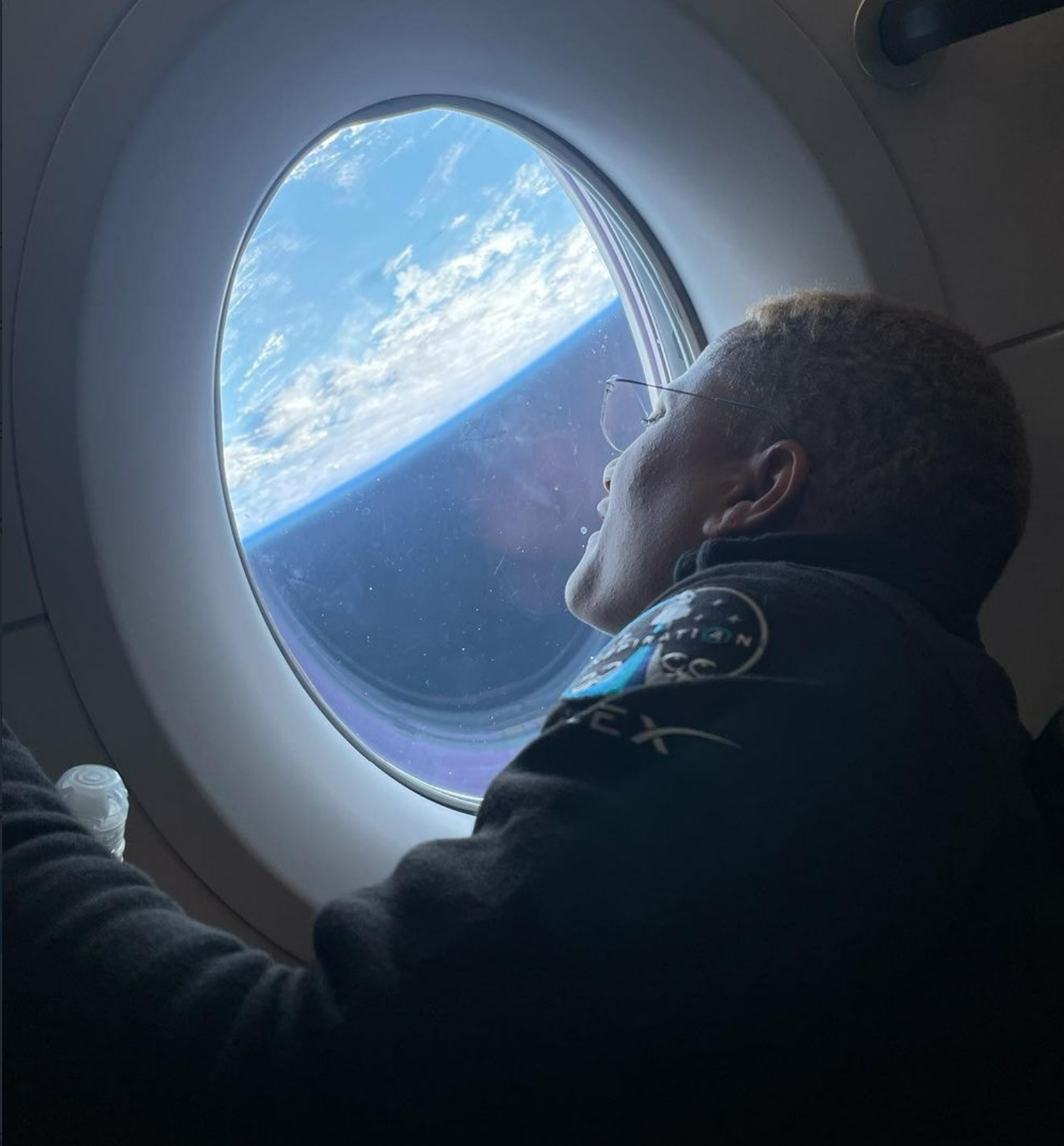
Each crew member received one last phone call. Proctor wanted to speak to former First Lady Michelle Obama. SpaceX made it happen.
Proctor says that her takeaway from the conversation was “what it means to be a first . . . to be able to navigate all of that and do it with such grace and style.”
“I loved her book, Becoming. This (mission) was my Becoming moment.”
Finally, it was launch day. Proctor had prepared her entire life for the moment.
“My Dad would be so proud,” she said. “He’d probably also say, ‘See, I told you (that) you could do anything, you just have to work hard.’”
There was trepidation, too. After all, the spacecraft would be rocketing around Earth every 90 minutes for three days at 17,000 mph.
“But to me, as an explorer, if I did pass away, it would have been doing the ultimate thing I love the most,” she said. “And, I can’t see a better way to go.”
Inspiration 4’s ignition was “fantastic,” she said, and after a bit of fist-bumping, the crew settled down to work. They conducted research, measuring their bladders, arteries, even eyeballs with handheld ultrasound machines. And they spoke with young patients at St. Jude Children’s Research Hospital, for which the mission reportedly raised about $200 million.
Proctor also taught an art lesson that was beamed back to Earth, using zero-gravity-capable colored pens and water-color paints to produce a beautiful rendition of the Dragon above Earth. She called the painting, “AfroGaia.”
Crew members slept in sleeping bags locked to their seats to counter weightlessness in the cabin, and ate like they were on a camping trip: cold pizza, BLT sandwiches and floating M&Ms.
There was one small emergency: A fire alarm sounded due to a waste-fan malfunction. There was no fire, and the crew diagnosed and resolved the issue quickly, she said.
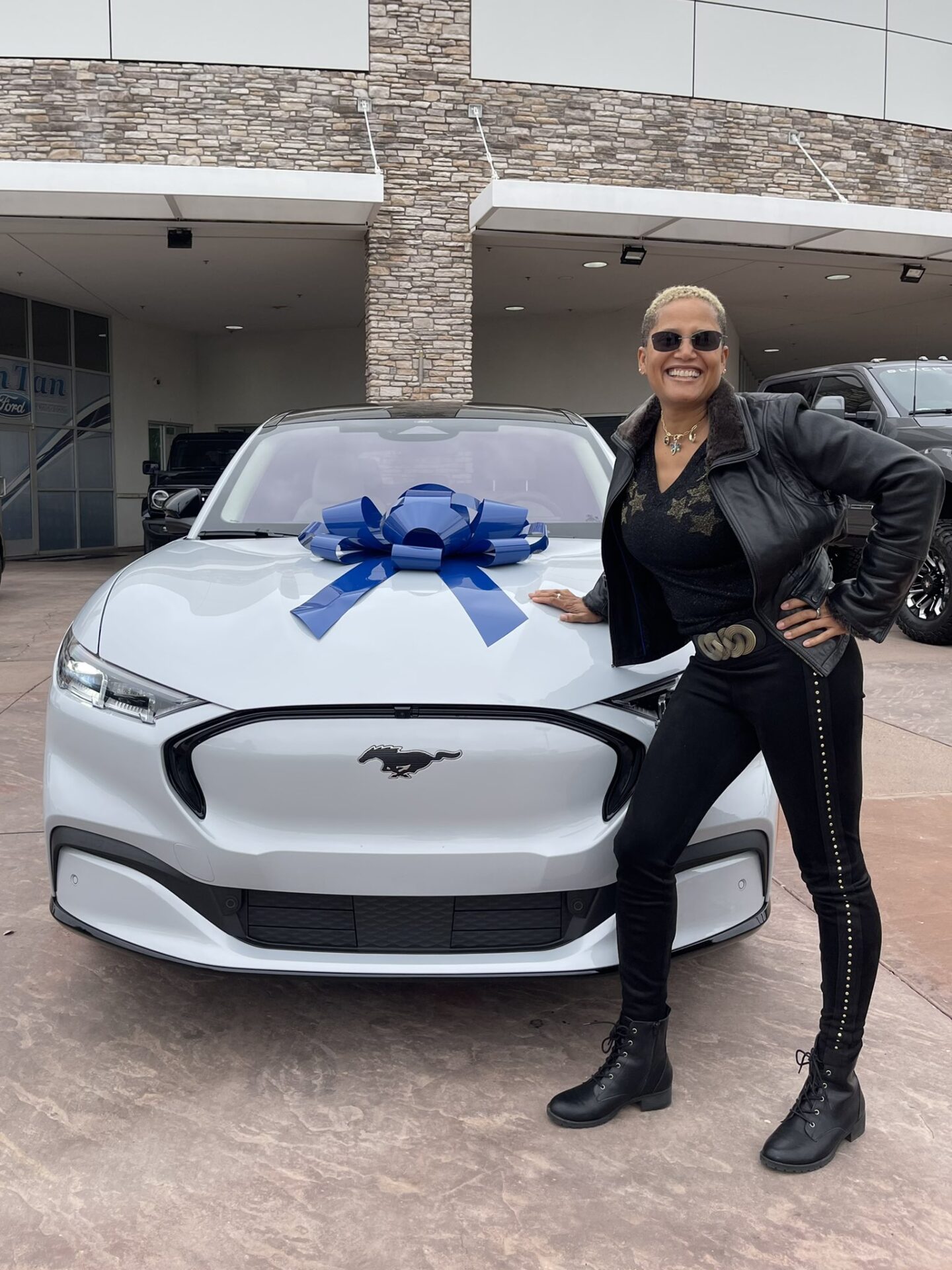
The highlight of Proctor’s three amazing days in space was her first glimpse of Earth from the Dragon’s cupola. A full moon, about which love songs and werewolf lore abound, pales in comparison to a view of the Blue Planet, she said.
Proctor also was thrilled during the mission to get to speak with her favorite musician, U2’s Bono. He later sent her a note welcoming her back to Earth, along with the album, The Space Between Us by Scottish composer Craig Armstrong.
* * *
A journey into space is life changing, says Proctor, who now directs the Global Futures Institute at ASU’s Tempe campus and is an astronaut ambassador for the Maricopa County Community College District.
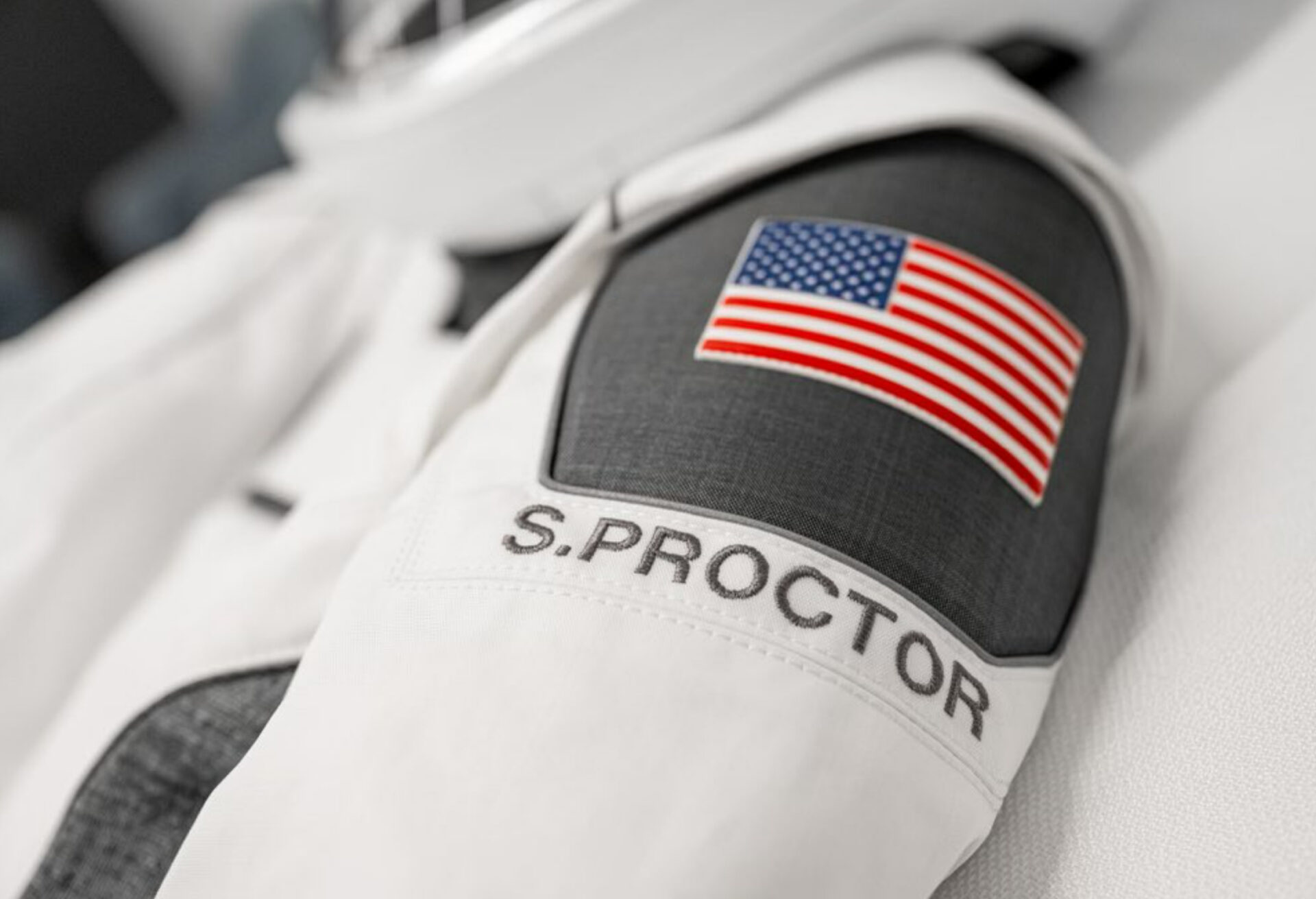 “The ‘I4’ mission has given me access to people and opportunities I didn’t have before,” she said. “I now have more of a global platform to share my motto and mission.”
“The ‘I4’ mission has given me access to people and opportunities I didn’t have before,” she said. “I now have more of a global platform to share my motto and mission.”
As Black History Month drew to a close in February, Proctor released her book, Space2inspire: The Art of Inspiration. She is an artist-in-residence with Subtractive, an art show in Los Angeles, and her space art can be purchased at Doctor Proctor’s Space2inspire.
She has co-organized an analog astronaut conference at the University of Arizona Biosphere 2 this spring, and is receiving, along with her crew, the Space Inspiration Award from Orlando-based Space for a Better World during a gala commemorating the 50th anniversary of Apollo 16.
What’s next for Dr. Sian Proctor? As a member of the board of directors of Astronomers Without Borders, she’s excited about astronomy outreach.
“Looking up at the night sky joins all of us,” she said.
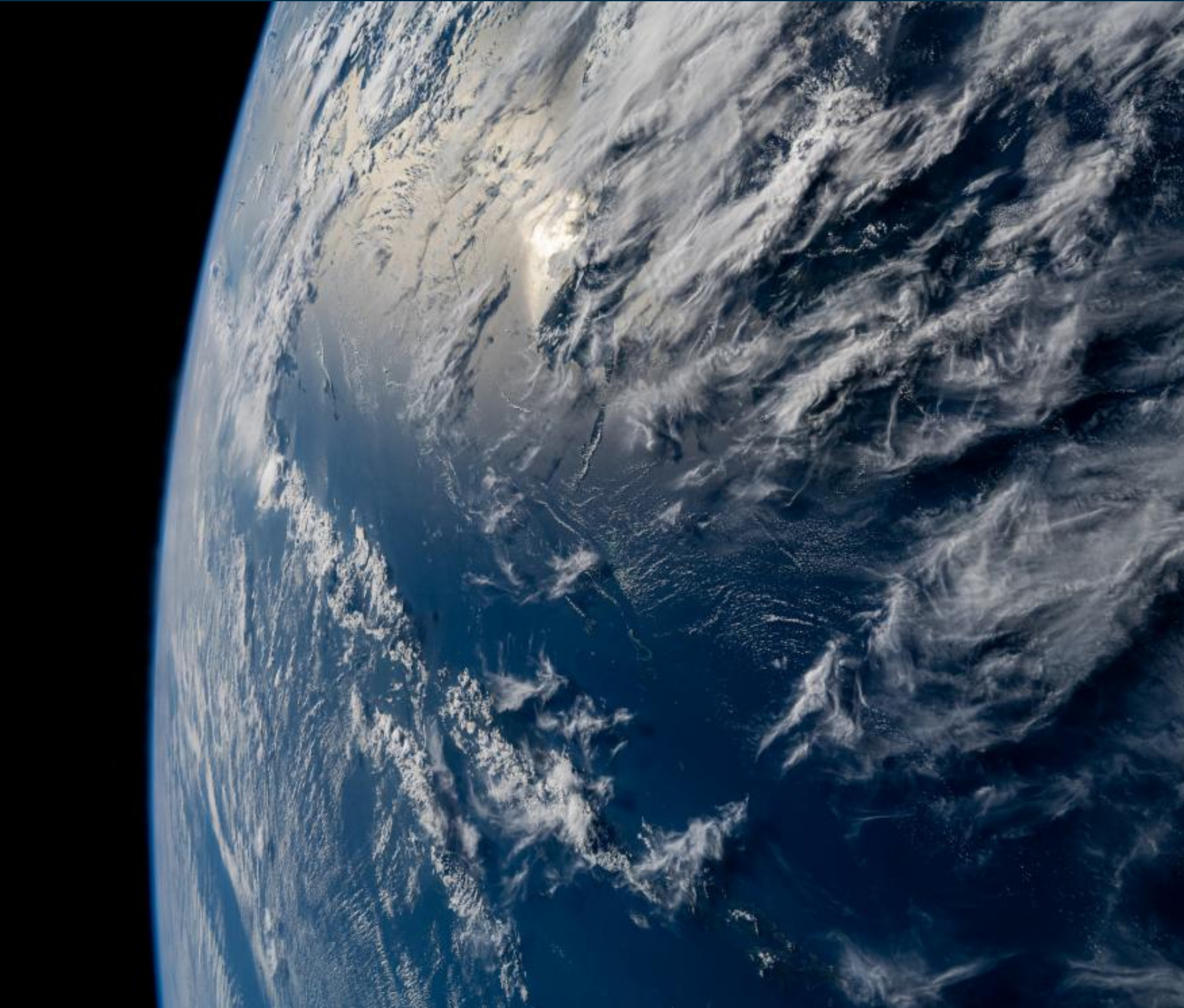
Beyond that, ocean exploration sounds intriguing.
“I think I’m going to become an aquanaut,” she said.

